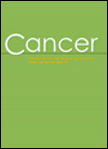Adolescent and young adult cancer patients
Recent publications highlight unique needs of young oncology patients and survivors
June 23, 2011
 Every year 2,000 Canadians aged 15 to 29 are diagnosed with cancer.1 In response to the unique needs of these young Canadians, the Canadian Task Force on Adolescents and Young Adults with Cancer (AYA Task Force) is pioneering work to investigate and increase awareness of treatment and survivorship issues.
Every year 2,000 Canadians aged 15 to 29 are diagnosed with cancer.1 In response to the unique needs of these young Canadians, the Canadian Task Force on Adolescents and Young Adults with Cancer (AYA Task Force) is pioneering work to investigate and increase awareness of treatment and survivorship issues.
The AYA Task Force, co-chaired by Drs. Ronald Barr, Paul Rogers and Brent Schacter, is an initiative of the Partnership and the C17 network of pediatric cancer centres across Canada. The task force recently made editorial and other contributions to two publications: the inaugural publication of the Journal of Adolescent and Young Adult Oncology (JAYAO) and a supplement to the American Cancer Society’s journal, Cancer. The supplement to Cancer also includes articles contributed by the Partnership’s Board Chair Dr. Simon Sutcliffe and Vice-President of Cancer Control Dr. Heather Bryant.
Journal of Adolescent and Young Adult Oncology
Published for the first time in May 2011, the new Journal of Adolescent and Young Adult Oncology seeks to be part of the movement to transform care and survivorship for adolescent and young adult patients and survivors. It is the first and only journal for cutting-edge multidisciplinary and translational research in this area of oncology, and will also serve as the official journal of the newly formed Society for Adolescent and Young Adult Oncology.
The AYA Task Force, established to help ensure that adolescent and young adult cancer patients and survivors have prompt and equitable access to the best care, contributed to the first issue of the JAYAO with the article Principles and Recommendations for the Provision of Healthcare in Canada to Adolescent and Young Adult-Aged Cancer Patients and Survivors by Dr. Brent Schacter and colleagues. The article outlines the group’s recent recommendations for improved care and research to address the inequities that currently exist for AYA patients and survivors compared to children or older adults with cancer. Dr. Ronald Barr, a pediatric hematologist and oncologist at McMaster University, is one of the peer-reviewed publication’s associate editors.
“Adolescents and young adults with cancer present distinctive challenges, including the unique distribution of tumours in this group of patients and their various levels of developmental maturity, that are currently not being addressed adequately,” Dr. Barr says. “We need to collaborate and share our experiences to develop solutions. Initiatives like the Task Force, the Society for Adolescent and Young Adult Oncology and the new international journal are concrete steps along this path.”
Contributions to the supplement to Cancer
The American Cancer Society Cancer supplement, Adolescent and Young Adults with Cancer: Towards Better Outcomes in Canada, describes the unique needs of this population and the themes that emerged from the AYA Task Force’s international workshop held in March 2010. These themes, developed by working groups that included survivors and cancer professionals, are:
- advocacy and awareness
- active therapy and supportive care
- palliation and symptom management
- psychosocial needs
- survivorship
- research and metrics
A total of 19 contributions came from the AYA Task Force members and invited participants.
The Partnership was also active in the Cancer supplement with articles from Dr. Heather Bryant, Screening for cancer in children, adolescents, and young adults, and Dr. Simon Sutcliffe, A review of Canadian health care and cancer care systems. Dr. Sutcliffe’s contribution illustrates that, while AYA patients may be a relatively small segment of Canada’s cancer system, they often do not receive the coordinated, integrated, and supportive care required to meet the needs and challenges of cancer and its treatment. The article highlights that there are gaps within the current cancer control system that require attention to better serve this unique population.
“The initiative to improve care and outcomes for AYA oncology patients is not unique to Canada,” notes Dr. Sutcliffe. “We need to bring an innovative approach to the many different aspects of care and support required to improve the system for adolescents and young adults with cancer. This includes rethinking facilities, personnel, education and training, research, support and rehabilitation, coordination of care and system integration.”
The inaugural issue of the Journal of Adolescent and Young Adult Oncology is available online. For information on the international journal of the American Cancer Society, Cancer, see the website.
Notes
1 Canadian Cancer Society/National Cancer Institute of Canada. Canadian Cancer Statistics, 2009. Toronto: Canadian Cancer Society, 2009. pp. 76, 78. Community Linkages
